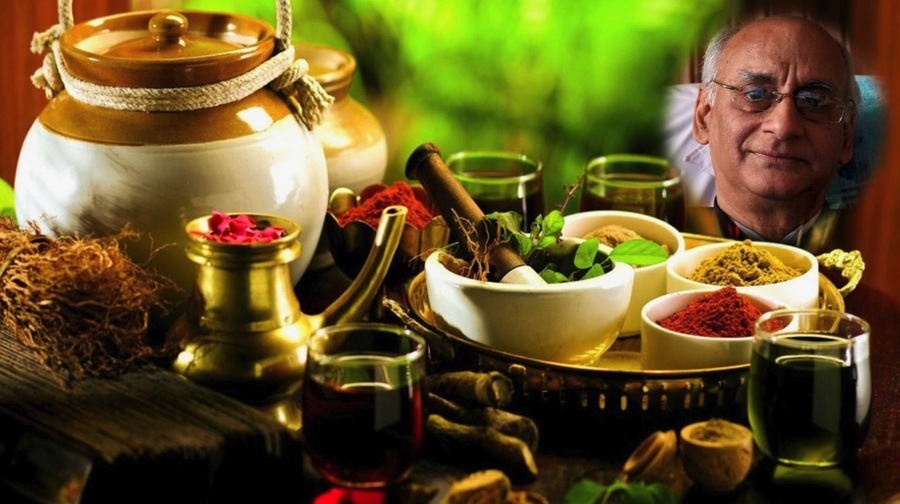Ayurveda, often referred to as the “science of life,” is one of the world’s oldest holistic healing systems. It originated in India over 5,000 years ago during the Early Vedic period. The earliest references to Ayurveda are found in the Rigveda, an ancient Indian text written around 1500 BCE. This period laid the foundation for Ayurveda through hymns and philosophical discussions about health and disease.
During the subsequent Atharvaveda period (around 1200 BCE), Ayurveda developed further with more detailed descriptions of medicinal plants, diseases, and treatments. The Charaka Samhita and Sushruta Samhita, two seminal texts written around 1000 BCE to 600 BCE, formalized the principles of Ayurveda. The Charaka Samhita focuses on internal medicine, while the Sushruta Samhita is renowned for its surgical techniques, including the earliest descriptions of plastic surgery.
Throughout the centuries, Ayurveda evolved through the contributions of various scholars and practitioners. The Buddhist period (around 500 BCE) saw the spread of Ayurvedic knowledge to other parts of Asia, integrating new herbs and treatments. In the medieval period, Ayurveda continued to flourish, blending with Islamic and Persian medical practices during the Mughal era.
In the modern era, Ayurveda faced challenges from Western medicine during the British colonial period. However, post-independence India saw a resurgence in interest and development of Ayurveda. Today, Ayurveda is recognized globally, with its principles and treatments integrated into various health systems worldwide.
Basic Ideas of Ayurveda
Ayurveda is based on the belief that health and wellness depend on a delicate balance between the mind, body, and spirit. This balance is achieved through the interaction of three fundamental substances, or doshas: Vata (air), Pitta (fire), and Kapha (water).
Vata (Air): Vata represents movement and is associated with the elements of air and ether. It governs bodily functions such as breathing, circulation, and nerve impulses. Imbalances in Vata can lead to conditions like anxiety, dry skin, and joint disorders.
Pitta (Fire): Pitta embodies transformation and is linked with the elements of fire and water. It controls metabolism, digestion, and body temperature. Pitta imbalances can cause inflammatory diseases, ulcers, and skin rashes.
Kapha (Water): Kapha signifies structure and stability, associated with the elements of water and earth. It is responsible for growth, immune function, and fluid balance. When Kapha is imbalanced, it can result in obesity, sinus congestion, and sluggishness.
The equilibrium of these doshas varies from person to person, creating a unique constitution for each individual. Ayurvedic treatments aim to restore this balance, promoting health and preventing disease.

Ayurvedic Treatments
Ayurveda offers a holistic approach to health through various treatments and practices, including:
Use of Herbs and Roots: Ayurvedic medicine extensively uses herbs and roots to treat various ailments. Commonly used herbs include turmeric, ashwagandha, tulsi (holy basil), and neem. These natural remedies are believed to have healing properties that can detoxify the body, boost immunity, and enhance overall health.
Purification Through Special Diets and Therapeutic Fasting: Ayurveda emphasizes the importance of diet in maintaining health. Specific diets are prescribed to balance the doshas and detoxify the body. Therapeutic fasting is also practiced to cleanse the digestive system, improve metabolism, and eliminate toxins.
Massage: Ayurvedic massage, or Abhyanga, involves the use of warm herbal oils to relax the body, improve circulation, and nourish the skin. Different types of massages target various ailments, such as Shirodhara for stress relief and Kati Basti for back pain.
Proper Nutrition and Sensible Lifestyle: Ayurveda advocates for a balanced diet tailored to an individual’s dosha type. It also promotes a sensible lifestyle that includes regular exercise, adequate sleep, and mental relaxation to maintain physical and mental well-being.
Yoga and Meditation: Integral to Ayurveda, yoga and meditation help harmonize the body and mind. Yoga postures (asanas) improve flexibility, strength, and circulation, while meditation techniques enhance mental clarity and emotional stability.
Recognition by the World Health Organization (WHO)
Since 1985, Ayurveda has been recognized by the World Health Organization (WHO) as one of the most effective systems of alternative medicine in the world. This recognition underscores the significance of Ayurveda in promoting global health and wellness.
Diseases Treated by Ayurveda
Ayurveda offers treatments for a wide range of diseases and conditions, including:
Digestive Disorders: Conditions like irritable bowel syndrome (IBS), acid reflux, and constipation are treated with dietary changes, herbal remedies, and detoxification practices.
Respiratory Issues: Ayurvedic treatments for asthma, bronchitis, and allergies include herbal inhalations, massages, and dietary adjustments.
Chronic Pain: Conditions such as arthritis, back pain, and migraines are managed through herbal therapies, massages, and yoga.
Skin Conditions: Ayurvedic remedies for eczema, psoriasis, and acne involve topical applications of herbal pastes, dietary changes, and detoxification.
Mental Health: Ayurveda addresses anxiety, depression, and insomnia with herbs, meditation, and lifestyle modifications.
Metabolic Disorders: Diabetes, obesity, and thyroid issues are treated with specific diets, herbal supplements, and exercise regimens.

Ayurveda in the UAE
In recent years, Ayurveda has gained popularity in the UAE. The country has seen the establishment of numerous Ayurvedic centers and hotels offering a wide range of herbal and mineral medicines, therapeutic treatments, and wellness programs. These centers provide personalized treatment plans that include herbal remedies, dietary guidelines, yoga, and meditation to improve health and treat various diseases. Finding a clinic in UAE that offers these services has become increasingly common for those seeking holistic health care.
Conclusion
Ayurveda, with its rich history and holistic approach to health, continues to be a valuable system of medicine. Its recognition by the WHO and increasing global popularity, including in the UAE, highlight its significance in modern healthcare. By focusing on the balance of the doshas and integrating treatments like herbal medicine, diet, massage, and yoga, Ayurveda offers a comprehensive approach to achieving optimal health and wellness.
